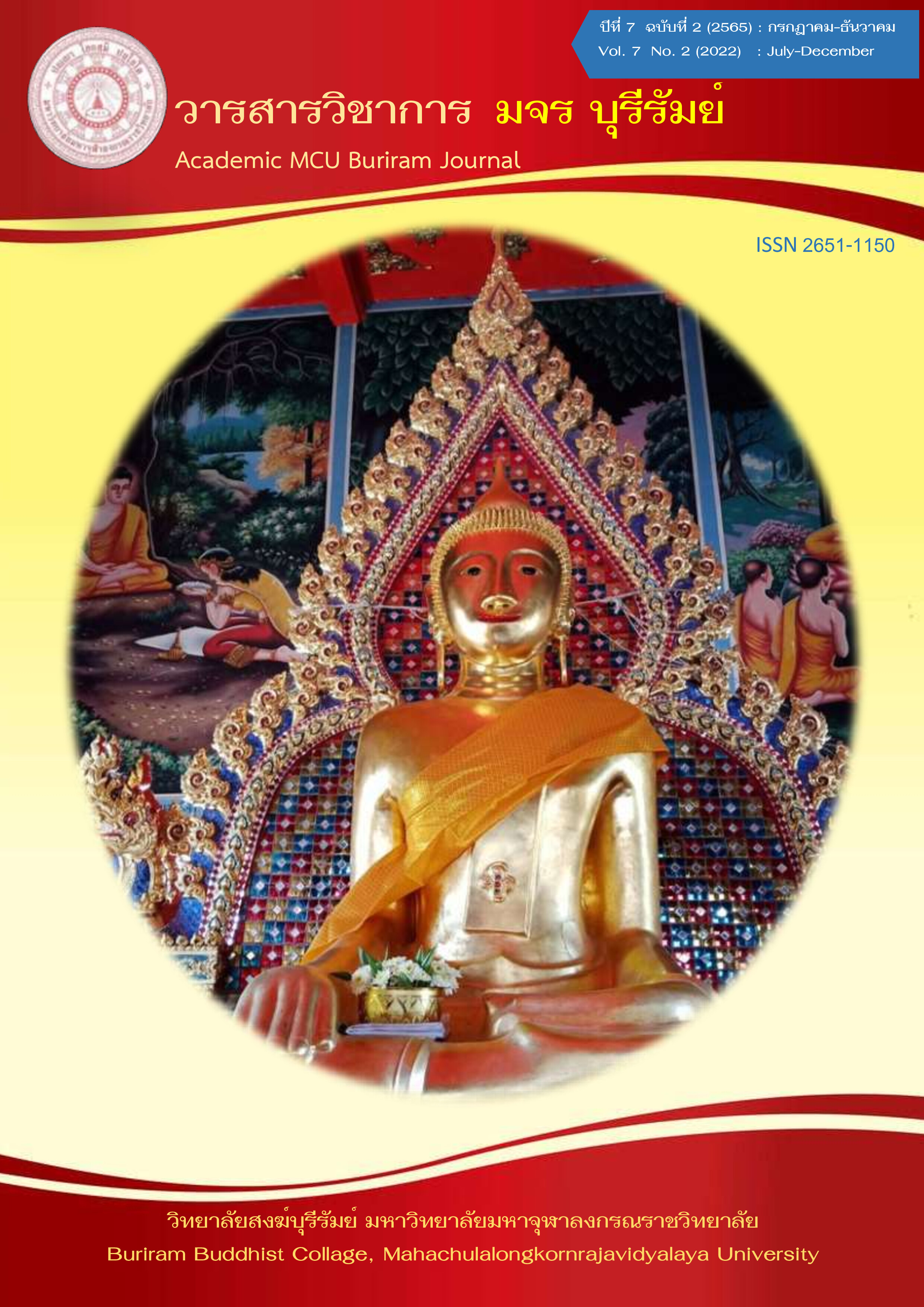Effects of Emotional Intelligence and Accounting Potential on Accounting Performance Success in the New Normal
Keywords:
Emotional Intelligence, Accounting Potential, Accounting Performance Success, Accountant, New NormalAbstract
The purpose of this research are 1) to study emotional intelligence accounting potential and accounting performance success of accountants in the new normal and 2) to study the impact of emotional intelligence and accounting potential on accounting performance success in new normal. This study was conducting quantitative research. Survey data with questionnaires from 352 accountants who working in accounting firms.
The research result finds that:
- Effects of emotional intelligence and accounting potential on accounting performance success in the new normal. Overall, the significance level was at a high level (
= 29), emotional intelligence (
= 4.28) the most valuable aspect was intrinsic ability (
= 4.34), accounting potential (
= 4.31) the most valuable aspect was accounting professional ethics (
= 4.36), and accounting performance success in the new normal (
= 4.33) the most valuable aspect was use technology effectively (
= 4.38).
2. The hypothesis testing results, it was found that emotional intelligence in aspects of self-efficacy, adaptation, stress management, self-management emotion and accounting potential in professional ethics and continuous learning has an impact on accounting performance success in the new normal with statistical significance at the 0.001 level.
References
กรมควบคุมโรค กระทรวงสาธารณสุขสาธารณสุข. (2564). จำนวนผู้ติดเชื้อ Covid-19. https://www.ddc.moph.go.th (สืบค้นเมื่อ 4 มกราคม 2565).
กรมพัฒนาธุรกิจการค้า กระทรวงพาณิชย์. (2564). ผลการดำเนินงานของสำนักงานบัญชี. https://www.dbd.go.th (สืบค้นเมื่อ 8 มิถุนายน 2564).
กรมพัฒนาธุรกิจการค้า กระทรวงพาณิชย์. (2564). จำนวนนักบัญชี. https://www.dbd.go.th (สืบค้นเมื่อ 25 มิถุนายน 2564).
กองยุทธศาสตร์และแผนงาน. (2564). ความปกติใหม่. https://www.fda.moph.go.th/ PLAN/SitePages/index.html (สืบค้นเมื่อ 10 มกราคม 2565).
พิมพาภรณ์ พึ่งบุญพานิชย์. (2563). ความสัมพันธ์ระหว่างความฉลาดทางอารมณ์กับประสิทธิภาพการทำงานและความสำเร็จในการปฏิบัติงานของผู้สอบบัญชีภาษีอากรในประเทศไทย. วารสารสุรนารี, 14(1), 57-58.
สภาวิชาชีพบัญชีในพระบรมราชูปถัมภ์. (2564). ทักษะนักบัญชี. https://www. tfac.or.th/upload/9414/1s721TNQoM.pdf (สืบค้นเมื่อ 4 ธันวาคม 2564).
สภาวิชาชีพบัญชีในพระบรมราชูปถัมภ์. (2564).. จรรยาบรรณของนักบัญชี. https://www. tfac.or.th/upload/9414/5HnUcQr4Rn.PDF (สืบค้นเมื่อ 4 ธันวาคม 2564).
สุลิตา สุปิณะ, อรยา เรียบไธสงค์ และธิติรัตน์ วงษ์กาฬสินธุ์. (2563). การศึกษาทักษะทางวิชาชีพบัญชีที่ส่งผลต่อความสำเร็จในการปฏิบัติงานของนักบัญชี: กรณีศึกษา นักบัญชีในเขตกรุงเทพมหานครและปริมณฑล. วารสารวิทยาการจัดการปริทัศน์, 1(22), 124-132.
Aaker, D. A., Kumer, V. & Day, G. S. (2001). Marketing research (7th ed.). New York: John Wiley & Sons.
Armstrong, J. S., & Overton, T. S. (1977). Estimating non-response bias in mail surveys. Journal of Marketing Research, 14(3), 396-402.
Bar-On, R. (1997). (2006). The Bar-On model of Emotional-social Intelligence (ESI). Psicothema, 18, 13-25.
Grove, K., S., Burns, N., & Gray, J. (2003). The Practice Nursing Research: Appraisal, Synthesis, and Generation of Evidence (8th ed.). Elsevier.
Hinkle, D.E. (1998). Applied Statistics for the Behavioral Sciences. Boston: Houghton Mifflin.
Huy, P. Q., & Phuc, V. K. (2021). Accounting Information Systems in Public Sector towards Blockchain Technology Application: The Role of Accountants’ Emotional Intelligence in the Digital Age. Asian Journal of Law and Economics, 12(1), 73-94.
Koul, L. (1984). Methodology of Educational Research. Vani Education Book, New Delhi.
Lase, E., Hwee, T. S., & Edward, Y. R. (2021). The Effect of Role Conflict and Ethical Sensitivity on Auditor Performance with Moderation of Emotional Intelligence. Journal of Economics, Business, & Accountancy Ventura, 24(2), 326-338.
Nunnally, J. C. and I. H. Bernstein. (1994). Psychometric Theory. New York: McGraw-Hill.
Phan, H., T., Mai, T., T. & Nguyen, T. T. (2021). The Impact of Emotional Intelligence Orientation on Audit Sustainability: Empirical Evidence from Vietnam. The Journal of Asian Finance, Economics and Business, 8(3), 1021-1034.
Royvinelli, R., J., & Hambleton, R., K. (1977). On the Use of Content Specialists in the Assessment of Criterion Reference Test Item Validity. Dutch Journal of Educational Research, 2, 49-60.
Yamane. (1967). Taro Statistic: An Introductory Analysis. New York: Harper & row.
Downloads
Published
How to Cite
Issue
Section
License
Copyright (c) 2022 Academic MCU Buriram Journal

This work is licensed under a Creative Commons Attribution-NonCommercial-NoDerivatives 4.0 International License.
ทัศนะและความคิดเห็นที่ปรากฏในบทความวารสารฉบับนี้ถือเป็นความรับผิดชอบของผู้เขียนบทความนั้น ไม่ถือเป็นทัศนะและความรับผิดชอบของบรรณาธิการ





